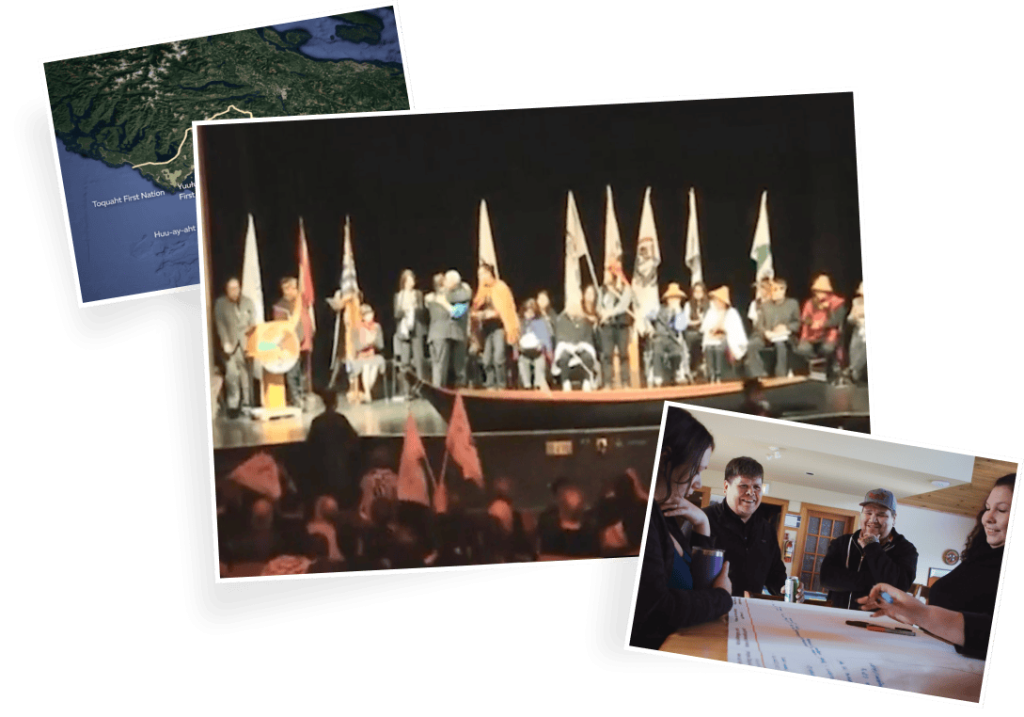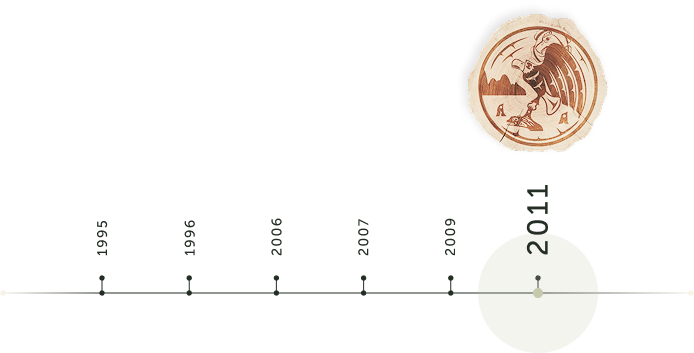Che:k’tles7et’h’
Home > About the Treaty
About the Treaty
TREATY OVERVIEW
A journey of self-determination
The Maa-nulth Treaty represents a historic milestone in the implementation of self-governance in a modern context for the five Maa‑nulth Nations. It embodies the shared vision of communities reclaiming their inherent rights while charting distinct paths forward.
Governance Evolution
Modern Treaty based in Tradition
For thousands of years, the ancestors of today’s Maa‑nulth Nations governed their territories through sophisticated systems grounded in principles – ʔiisaak (respect for all things), hišh-ukišh c̕awak (everything is connected), and ʔuuʔałuk (to take care of).
Five nations, one Modern Treaty
Treaty History
Forging a relationship
From negotiations beginning in 1994 to the effective date in 2011, five Nations chose to work together to become Modern Treaty Nations.

Treaty Timeline
From vision to reality
From the initial negotiations in 1995 to the effective date in 2011, the journey to a Modern Treaty reflects years of dedication, vision, and perseverance.

Treaty Lands
Land, water, heritage and tradition
The Maa‑nulth Treaty recognizes the territories of the five Nations stretching along Vancouver Island’s west coast from Barkley Sound to Kyuquot Sound. These areas are now formally acknowledged within Canada’s constitutional framework.
United through the Treaty, each Maa‑nulth Nation maintains distinct identity and unique perspectives,
governance, and cultural traditions.
Five distinct nations
Treaty Implementation
Living treaty,
evolving relationship
The Treaty guides governance and relationships, demonstrating how traditional wisdom informs contemporary governance and creates a reconciliation model based on respect.
Constitutional Rights
Framework for reconciliation
The Maa-nulth Treaty marks a new relationship between Nations, British Columbia and Canada, affirming self-determination while creating pathways for future generations.